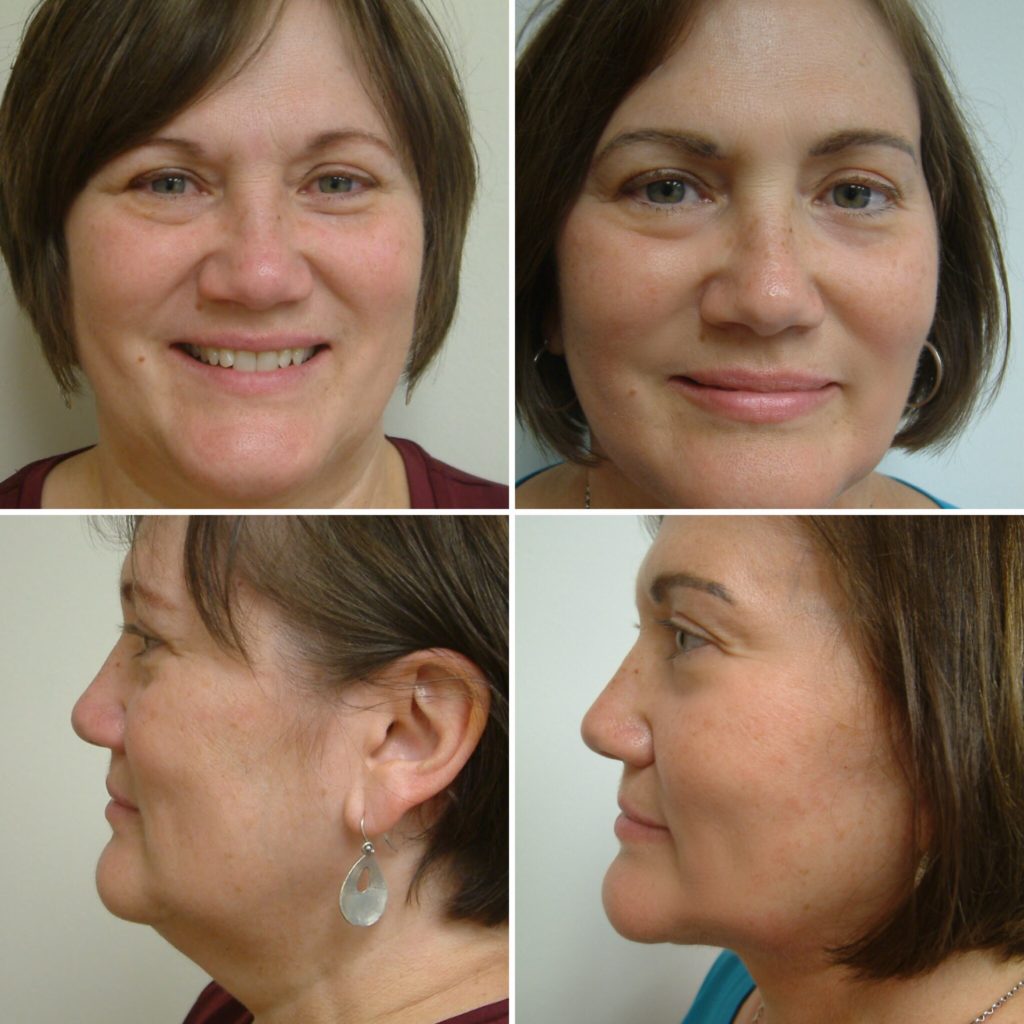Hormone Replacement Therapy For Men
Bio-Identical Hormone Replacement for Men in Cincinnati & NKY
When hormones fall out of balance, some men begin to experience the unpleasant effects of aging, and may need hormone replacement therapy. Workouts are not as easy as they used to be, and this is due to the fact that on average men lose 12-15 pounds of muscle mass with hormone decline. Testosterone helps to build muscle, and because of its role in forming red blood cells, it helps to speed up regeneration and reduce recovery time.
Men may start to notice the extra layer of fat has begun to accumulate around the midsection of his abdominal area, and this is because the decreased muscle mass slows down metabolism and causes fat to accumulate. Many of these issues are due to a loss of testosterone, which is the primary male sex hormone.
Testosterone is the main hormone that makes a “man a man.” When it becomes low, you may have symptoms occur that can significantly reduce your quality of life.
Testosterone is not the only male hormone that keeps the body functioning properly and in balance, it is accompanied by estrogen and progesterone. Together, these hormones comprise the primary group of sex hormones.
Symptoms of Male Hormonal Imbalance
Many of the symptoms of male hormonal imbalances come on very gradually. You may not notice them at first, but as more symptoms appear and become worse over time, they do become apparent. These symptoms of male hormone imbalance are some of the most common:
- Erectile dysfunction
- Hair loss
- Low libido
- Fatigue or lack of energy
- Night sweats or hot flashes
- Memory loss
- Mood swings or irritability
- Heart palpitations
- Muscle loss or weakness
- Sleep apnea or insomnia
- Depression or anxiety
- Constipation or increased bowel movements
- Increased body fat
- Gynecomastia (development of breasts in men)
Primary Male Sex Hormones
Testosterone
Testosterone decline can begin as early as a man’s 30’s; however, when a man hits his 40’s or 50’s, it drastically decreases even more. A substantial number of symptoms may happen and as a result of this decline, the ability to reproduce or function sexually, may begin to decrease.
Why do Men Need Testosterone Pellets?
As men get older, they will have a decrease in testosterone levels. This can cause not only numerous symptoms but can also lead to medical problems.
A study that was performed by the Veterans Administration showed an increase in death rate among men with testosterone levels in the low range of 250ng/dl. Other studies showed an increase in heart attacks of men with testosterone levels in the low range of normal. Many physicians do not test men’s levels of testosterone because in our training in medical school and residency, we were not taught how testosterone could affect our health.
Low levels of testosterone can potentially contribute to the risk of the following medical problems:
- Heart Disease
- Decrease sexual desire
- Erectile dysfunction
- Increase body fat
- Loss of muscle mass
- Fatigue
What Are Some of the Signs of Low Testosterone?
- Irritability
- Burnt out feeling
- Decrease muscle mass
- Weight gain
- Joint pain
- Decrease in morning erections
- Decrease in libido
What Is Involved with Hormone Replacement Treatment and When Will I Feel Better?
You will need to have blood work performed before your initial consultation with the Doctor.
If you are found to be a good candidate for hormone replacement, then testosterone pellets will be placed into your upper buttocks through a small stab wound. The area is first numbed with local anesthetic. It is a virtually painless procedure.
You will then need your blood levels tested every 3 months to check if the dosage is accurate, and would come back every 4 -5 months for new pellet placement.
You will notice an increase in energy in about a month, as well as an increased sex drive. An increase in muscle mass will take 6-8 months to start to notice. Sometimes, you may not start feeling better and see an improvement with many of your symptoms until after your second pellet treatment.
Are There Any Side Effects of Hormone Replacement?
There are a few side effects that can occur with hormone replacement. It can cause a decrease in sperm count, but this would return to normal once treatment was stopped.
Another side effect is testosterone can cause an increase in your red blood cell count. If it increases above the normal range, this could cause your blood to thicken and lead to a blood clot. The treatment for this is donating blood to your local blood bank
Thyroid Hormone
Your thyroid gland, through the hormones it produces, influences almost all of your metabolic processes in your body. Thyroid disorders involve either too much or too little thyroid production. The signs and symptoms can vary but in general tend to develop slowly, often times over a number of years.
Insufficient hormone production leads to hypothyroidism and can cause a variety of symptoms. At first, you may barely notice the symptoms such as fatigue and weight gain, or you may simply attribute them to getting older. But as your metabolism continues to slow, you may develop more obvious signs and symptoms which may include fatigue, increased sensitivity to cold, unexplained weight gain, muscle aches and tenderness and hoarseness.
Vitamin D
Vitamin D has been shown to play a role in the prevention and treatment of a number of different conditions. Vitamin D is called a vitamin; however, it is really an essential hormone. Vitamin D is better known for its ability to promote bone strength by increasing calcium absorption, but it is also well known for helping prevent heart disease and cancer.
As a fat-soluble vitamin, vitamin D is naturally present in very few foods, added to others, and available as a dietary supplement. It is also produced endogenously when ultraviolet rays from sunlight strike the skin and trigger vitamin D synthesis.
Regularly checking your blood levels of Vitamin D is essential. Symptoms of low vitamin D are usually unnoticed and when left untreated can be harmful can include bone pain, cracking sensation of the bones, back pain, depression and lack of concentration.
Erectile Dysfunction
When a man is suffering from low testosterone levels, a number of symptoms will occur and one of them is erectile dysfunction. Since testosterone is closely linked to libido, a deficiency can result in a man not being able to become sufficiently aroused enough to prompt an erection. In some men, the sexual drive and desire is still there, but they are still experiencing impotence. This is because testosterone also has a role to play in sustaining an erection.
If a testosterone deficiency is identified as the cause of erectile dysfunction, then bio-identical hormone replacement therapy can help to restore the balance and get things back in their correct working order.
Fatigue
A common symptom of andropause is fatigue in men which results from the combination of many other symptoms of hormonal imbalance. Fatigue is a condition in which you feel tired or worn out over an extended period of time. You often experience a waning capability for work or every day activities and an overall reduced efficiency and sense of achievement.
When a man’s hormones are in balance, many things fall into place. Balancing testosterone and cortisol levels with Bio-Identical Hormone Replacement Therapy can relieve many symptoms of andropause that men experience.
Once your hormone levels are more balanced, these symptoms begin to lessen and disappear, your energy levels increase and your mood improves, effectively reducing or eliminating the fatigue you have been experiencing.
Weight Gain
While the cause and effect relationship is not clear, it is apparent that there is a strong connection between weight gain in men and andropause related hormonal imbalances. Obesity and low testosterone go hand in hand. Low testosterone levels are seen in 75% of obese men, including those below 20 years of age. Low testosterone and high cortisol seem to increase body fat, especially in the midsection, and decrease muscle mass in men.
While the mechanism is not fully understood, it seems that central obesity (“belly fat”) both inhibits testosterone production and promotes the conversion of testosterone into estrogen. Likewise, high testosterone is associated with low body fat.
In most weight loss studies, people begin to regain weight within 6 to 12 months. However, men being treated with testosterone did not show this pattern. Some men were able to discontinue testosterone replacement after losing weight, as long as they remained physically active.
Contact us today at Rejuvene Plastic Surgery in Hebron, KY, to schedule your consultation.


